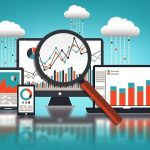A strong CRM system can provide nearly every department in a business the proper information to offer customers the experience that meets their needs. Every single interaction that a customer has with your company makes up part of their experience, and one glitch could result in a lost sale. According to Microsoft's report, customer expectations for service are higher than ever … [Read more...] about 4 Critical Data Sources that Need to Be in Your CRM
Big Data
Learn everything you need to know about big data. Find out how companies are using this revolutionary technology and what it means for your business strategy.
Healthcare and Data: Solving the Healthcare Data Interoperability Dilemma
What would it mean for healthcare if the countless electronic health records (EHR) and health information systems (HIS) could speak the same data language? That goal of healthcare data interoperability is a growing challenge in a complex healthcare continuum. What's at stake is the ability to make patients and consumers part of the healthcare data cycle with a real shot at … [Read more...] about Healthcare and Data: Solving the Healthcare Data Interoperability Dilemma
3 Reasons 2019 Will Be the Year of Intelligent Automation
Businesses in all industries are increasingly being asked to do more with less. Public and private enterprises are required to continually improve their products and services while maintaining high customer care and reducing costs. To take on this tall order more and more businesses are looking to technology to solve business problems and deliver better results. Some of the … [Read more...] about 3 Reasons 2019 Will Be the Year of Intelligent Automation
What Are the Business Benefits of Data Mining?
In today's landscape, there's nothing more important than valuable information. Companies receive information in the form of digital data or content, more commonly in the shape of performance and user metrics. By using this information, businesses can improve existing strategies, come up with new more successful solutions and better serve their audience. The entire operation … [Read more...] about What Are the Business Benefits of Data Mining?
The Organisation of Tomorrow Available Soon!
On March 18, 2019, I was notified by the University of Technology Sydney that I had officially completed my PhD (yay!). As a result, I now hold a PhD in management. During my PhD, I researched how emerging information technologies such as big data analytics, blockchain and artificial intelligence, challenge organisation design and strategic management, and bring the role of … [Read more...] about The Organisation of Tomorrow Available Soon!
What is big data?
Big data is a term that refers to the massive amount of digital data created and shared every day. Big data can transform how we live, work, and communicate. It can be used to improve everything from public health and urban planning to business and marketing.
Big data is also changing the way we think about privacy and security. The volume, velocity, and variety of big data present challenges and opportunities for organizations and individuals. Regardless, big data is here to stay, and its impact will only continue to grow in the years to come.
What is big data analytics?
Big data analytics is the process of turning large, complex data sets into actionable insights. Businesses use various analytical tools and techniques, including machine learning and statistical analysis, to do this.
Big data analytics can be used to improve decision-making in areas like marketing, operations, and customer service. It can also be used to identify new business opportunities and optimize existing processes. With the help of big data analysis, businesses can gain a competitive edge by using their data better.
Want to learn more about big data? Datafloq has courses available. Contact us to get started.
When was big data introduced?
The term big data was coined in the 1990s, with some giving credit to John Mashey for popularizing the term. However, the concept of big data has been around for much longer.
Where does big data come from?
In the early days of computing, scientists and businesses began to realize that the amount of data being generated was increasing exponentially. As a result, they began to develop new methods for storing and processing data.
Over time, these methods have become increasingly sophisticated and have played a key role in enabling businesses to make sense of vast amounts of information. Today, big data is used in various industries, from retail to healthcare, and its importance is only likely to grow in the years to come.
What are examples of big data?
One of the most common examples of big data is social media data. With over 2 billion active users, Facebook generates a huge amount of data every day. This includes information on user interactions, posts, and even location data. Analyzing this data can help companies better understand their customers and target their marketing efforts.
Another example of big data is GPS signals. These signals are constantly being generated by devices like cell phones and fitness trackers. When combined with other data sets, GPS signals can be used to provide insights into everything from traffic patterns to human behavior. Finally, weather patterns are another type of big data set. By tracking these patterns over time, scientists can better understand the impact of climate change and develop strategies for mitigating its effects.
How do companies use big data?
Companies use big data in marketing, product development, and customer service. By analyzing large data sets, businesses can identify patterns and trends that would be otherwise difficult to spot. For example, a company might use big data to track customer behavior patterns to improve its marketing efforts.
Alternatively, a company might use big data to improve its products by identifying areas where customers are most likely to experience problems. For instance, big data can be used to improve customer service by finding pain points in the customer journey. Ultimately, big data provides companies with a valuable tool for gaining insights into their business operations.






